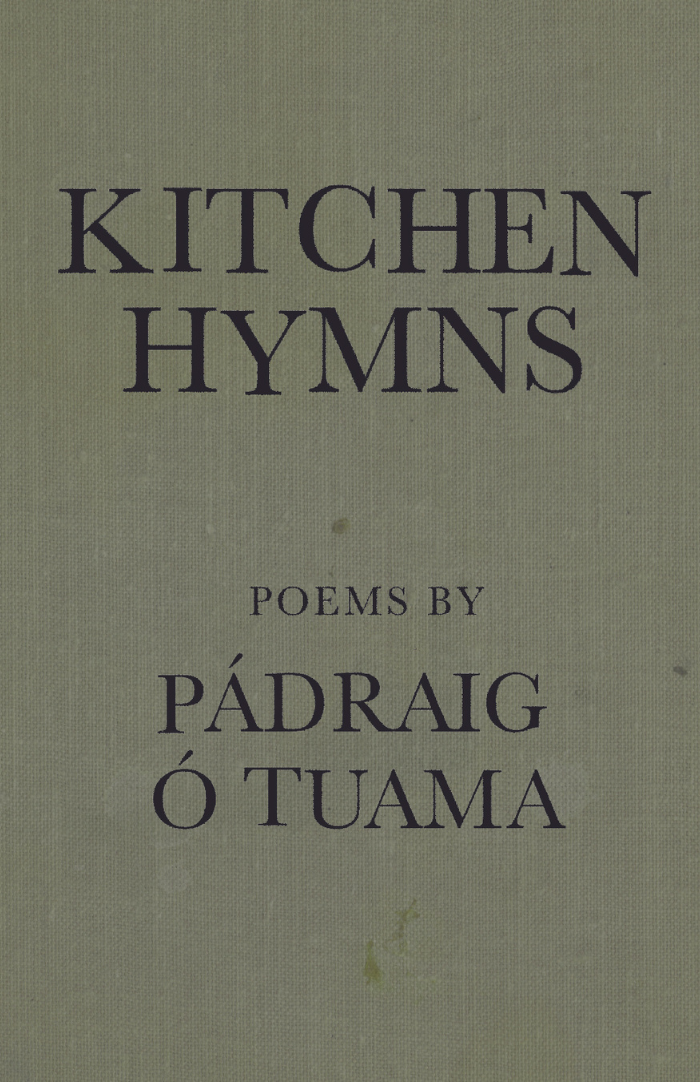WP_Post Object
(
[ID] => 18574
[post_author] => 14
[post_date] => 2024-01-17 12:49:06
[post_date_gmt] => 2024-01-17 18:49:06
[post_content] => Pádraig Ó Tuama’s Kitchen Hymns opens with a question: “Do You Believe in God?” — but the bee, “gone extinct,” cannot answer, and the grass calls believe “a poor verb.” This collection trades belief for language, and philosophy is grounded in form and narrative. Kitchen Hymns is structured like a ghost mass, where even if God is a “favorite emptiness,” longing still has things to say: Jesus and Persephone meet at Hell’s exit and discuss survival; someone believes more in birds than belief; hares carry messages from the overworld to the underworld. A study in lyric address, Kitchen Hymns speaks to a shifting “you”: an unknown you; the strange you; a lover, a hated other; the you of erotic desire; the you of creation and destruction. Large themes are informed by and contained in a poetics of observation, humor, trauma, dialogics, lament, rage and praise. Delivered in finely honed melodies, shaped with force and conviction, Kitchen Hymns “reckon[s] with the empty,” and becomes “busy with a body / not a question.”
[post_title] => Kitchen Hymns
[post_excerpt] =>
[post_status] => publish
[comment_status] => closed
[ping_status] => closed
[post_password] =>
[post_name] => kitchen-hymns
[to_ping] =>
[pinged] =>
[post_modified] => 2025-05-16 11:10:10
[post_modified_gmt] => 2025-05-16 16:10:10
[post_content_filtered] =>
[post_parent] => 0
[guid] => https://blueflowerarts.com/?post_type=new-releases&p=18574
[menu_order] => 0
[post_type] => new-releases
[post_mime_type] =>
[comment_count] => 0
[filter] => raw
)

Pádraig Ó Tuama’s Kitchen Hymns opens with a question: “Do You Believe in God?” — but the bee, “gone extinct,” cannot answer, and the grass calls believe “a poor verb.” This collection trades belief for language, and philosophy is grounded in form and narrative. Kitchen Hymns is structured like a ghost mass, where even if God is a “favorite emptiness,” longing still has things to say: Jesus and Persephone meet at Hell’s exit and discuss survival; someone believes more in birds than belief; hares carry messages from the overworld to the underworld. A study in lyric address, Kitchen Hymns speaks to a shifting “you”: an unknown you; the strange you; a lover, a hated other; the you of erotic desire; the you of creation and destruction. Large themes are informed by and contained in a poetics of observation, humor, trauma, dialogics, lament, rage and praise. Delivered in finely honed melodies, shaped with force and conviction, Kitchen Hymns “reckon[s] with the empty,” and becomes “busy with a body / not a question.”

